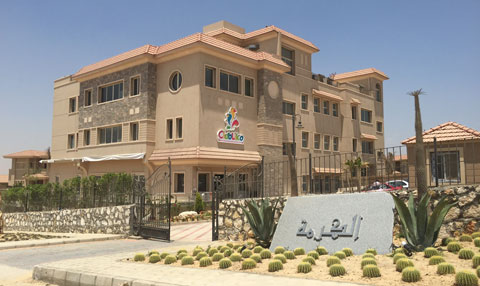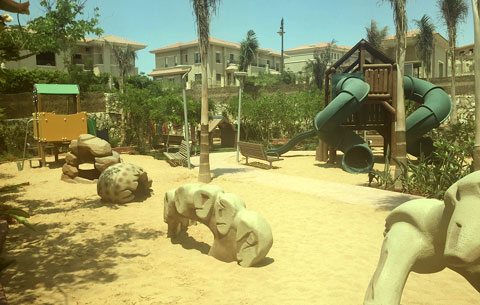
Vol. XV, No. 6, July 2015
- Editor's Travelogue
- Only 8 days left, don't miss out
- Uptick in births in 2014
- Bowling; a tale of two worlds
- The rise of young adult singledom
- Saving clients from themselves
- 90% of all new mothers are Millennials, and they have different values
- The new era of food, wine & beer festivals
- Growing your group sales
- Raising salaries can increase profits
- I want it when I want it without leaving home
- The state of family play
Editor's Travelogue
Staying healthy on the road
In my many millions of miles of travel throughout the world, I have never gotten sick. I have a good immune system (probably due to eating dirt when I was really young), but still I do follow some basic precautions to avoid those nasty germs and viruses that can do you in on a trip, especially ones that exists in other countries you may never have met up with before. I thought I'd share a few travel health tips with you:
- When you go through airport security, you usually will have to put some of you belongings in those plastic bins that go through the X-ray machine. Hundreds if not thousands of travelers will handle those bins each day. As soon as I get through security, I find the nearest restroom to wash my hands. Since I travel with carry-one luggage, I make sure to use my paper towels to also whip off the handle, as any nasty bugs I might have gotten on my hands from handling the bins will have been transferred to that handle. The best way to avoid handling the TSA bins in the U.S. is to be qualified for Pre-Check. Then you won't have to take anything out of your carry-on, purse or computer bag and put them in the bins.
- When taking a train between terminals in the larger airports or one of the transport buses that take you to the airplane in some countries, I don't ever hold a handrail with my hand. I find a floor to ceiling vertical bar and I wrap my arm around it to hold on.
- For ATMs, light switches on airplanes, touch screens and anything else that requires you to touch it to perform a function, don't use the tip of a finger. Instead use a knuckle or back of your hand.
- Need to sign a hotel registration, credit card acknowledgment or any other document, don't use their pen - thousands of people have handled it. Always carry your own pen to use.
- Those airplane restrooms can be nasty places. Touch as little as possible, wash your hands thoroughly and use a paper towel to open the door so you don't touch anything after you washed your hands.
- I've fortunately never gotten an upset stomach or worse. In some third world countries you need to be very careful and only eat cooked foods and drink bottled water and beer. But in much of the world and at 5-star hotels that is not a problem. Even the tap water will be fine, as any good 5-star hotel will have its own filtration system. I will eat anywhere my clients eat, and that includes street food. But just in case, my doctor prescribed a very powerful antibiotic that I carry with me on the road that he says will kill just about anything (except me). Getting a prescription while on the road can be a real hassle.
- Wash your hands thoroughly and frequently with soap. You can carry a hand sanitizer solution for when you can't, but it is not as effective as soap.
- I've had immunization shots for all types of diseases including yellow fever. When traveling to a third-world country, I check the CDC's Travelers Health website for advise on any addition immunizations or precautions I should take such as malaria pills for some tropical locations.
- Check your medical insurance before traveling. Some policies only insure you in your state. Most don't cover you overseas. I have an annual medical travel insurance policy with GeoBlue.
- And just in case I really get seriously ill or injured, I carry emergency medical evacuation by private jet insurance to get me back home to the U.S. or to a great hospital in some place like Singapore. The insurance is amazingly inexpensive either on a per trip or annual basis. I carry annual coverage with MedjetAssist.
Trip to Vietnam
I just completed my eleventh trip to Vietnam for our Helio Center FEC project there in Da Nang. The trip is over 13,000 miles round trip, equivalent to traveling half way around the world. It takes over a day one way, including 18.5 hours actually up in the air flying.
The project opened in February and this trip was for a post-opening evaluation and consultation with our client. The center is doing good business and will improve as our client gets further up the learning curve on operations and marketing that work best in that culture. Summer is actually a very busy time for the FEC due to the influx of summer tourists, both from other parts of Vietnam as well as other Asian countries including Korea and China. We're getting a whole collection of photos from Helio Center that we will share with you in the next issue.
When I travel to overseas locations, I make it a point to never eat American food, but rather take in the local culture by eating the native cuisines. And that is exactly what I've done on every trip to Vietnam. One food I learned to eat and enjoy in Vietnam is Phở or pho, a Vietnamese noodle soup consisting of broth, linguine-shaped rice noodles called bánh phở, a few herbs, different greens, and meat, usually either beef or chicken. Pho is a very popular food in Vietnam. Southern Vietnamese eat it for breakfast and occasionally lunch, whereas those from northern Vietnam consume it at any time of day.
The habit of eating lots of soups evolved not that many years ago when Vietnam was a very poor nation. Soups, with all their liquid, will easily fill you up.
The broth is the most important element of Vietnamese pho. Pho broth is considered the life and soul of the dish. It is what gives the soup its distinct character and makes the dish Vietnamese pho.
The flavor of beef or chicken bone marrow is the essence of pho broth. Good pho broth takes a long time to cook, as the bones have to be boiled gently for a long time, at least for 6 to 8 hours. Restaurant-quality pho is usually simmered for up to 12 hours or more.
It takes so long to make the broth as the marrow in the bones need to dissolve into the water. You can't force it with shorter but harder boiling as a hard boil distorts the flavor of the pho broth.
Due to the long cooking time for the broth, pho is now mostly consumed in restaurants. There are many independent and chain pho restaurants in Vietnam's larger cities
In Da Nang, which is in the middle of the country (neither north nor south), pho is eaten anytime of the day. I had it every day for breakfast. On my last day there for dinner (my flight home left at midnight), our client took me to the pho restaurant most popular with the Da Nang residents and we had beef pho. The restaurants that Vietnamese residents eat at are far more basic than the restaurants serving the tourist market. Here are a few photos of the restaurant - exterior, herb chopping and foodporn of my pho before I ate it all. As you can see, they didn't need to hire a kitchen designer.


Club Liko to finally open
Trying to develop a center in a country during two different political revolutions has its challenges and can slow things down. Club Liko, a children's edutainment center located in Sheikh Zayed City, part of the greater Cairo, Egypt metro, will open September 12th. We started work on Club Liko back in 2010, so considering it was built from the ground up, five years isn't all the bad when you factor in two revolutions.

Part of Club Liko's children's play garden
We have projects in the U.S. take longer without revolutions. We first started work on our project in the greater Seattle area that has had full funding from its start back in 2008 with a feasibility study. A site was located in a new shopping center to be built that year, but the Great Recession but a hold on its development until 2011. But then the City put a damper on things when it turned down the size of the supercenter supermarket to go in the center. In 2012, the supermarket agreed to reduce its size and zoning and site plan approval started again with the City. That has been an on-going process with a final zoning approval hearing on June 18. That means our client's center will probably not open until late 2016/early 2017, nine years after its start. So five years for completion in Egypt isn't all that bad.
Our Club Liko client recently traveled to Chicago where we met her and took her to spend time at Bellaboo's, a children's edutainment center we designed and produced an hour outside of Chicago in Indiana, to learn more about operations, and then she attended Frank Price's Birthday University in Raleigh, NC.
Alexandria, Louisiana
Okay, traveling to Louisiana might not be as exotic as travel to Vietnam, put Louisiana is a bit of a different, somewhat exotic culture, especially if you live in the Midwest of America like we do. I was in Alexandria to evaluate both market and physical feasibility for renovating an older bowling alley to become a modern hybrid entertainment and restaurant center for our new client there.
Don't forget the upcoming July 14-16 Foundations Entertainment University 2.0 is just two weeks away. This greatly enhanced seminar program will raise the bar for industry education with three full days, 12 breakout sessions and behind the scene tours of cutting edge FECs (see article in this issue). Cut-off for registration is July 16.
I hope you enjoy reading some of the articles in this super-sized summer reading issue. We've tried to make them informative with information you won't find in any other industry publication.

Vol. XV, No. 6, July 2015
- Editor's Travelogue
- Only 8 days left, don't miss out
- Uptick in births in 2014
- Bowling; a tale of two worlds
- The rise of young adult singledom
- Saving clients from themselves
- 90% of all new mothers are Millennials, and they have different values
- The new era of food, wine & beer festivals
- Growing your group sales
- Raising salaries can increase profits
- I want it when I want it without leaving home
- The state of family play


